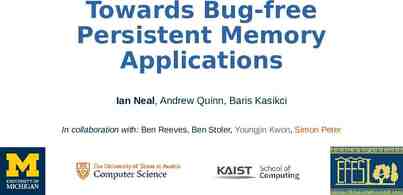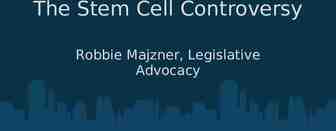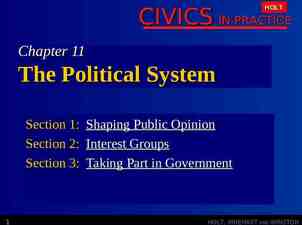Learning aim B: Examine the ethical issues involved when providing
24 Slides105.78 KB

Learning aim B: Examine the ethical issues involved when providing care and support to meet individual needs Outstanding Resources 2017

B1 Ethical issues and approaches Ethical theories, to include consequentialism, deontology, principlism and virtue ethics Ethics is about the issues of right and wrong. Consequentialism is based on two principles: Whether an act is right or wrong depends only on the results of that act The more good consequences an act produces, the better or more right that act It gives us this guidance when faced with a moral dilemma: A person should choose the action that maximises good consequences And it gives this general guidance on how to live: People should live so as to maximise good consequences Different forms of consequentialism differ over what the good thing is that should be maximised. Consequentialist ethics holds the view that the correct moral response is related to the outcome, or consequence, of the act. The different forms of consequentialism are Utilitarianism and Hedonism Outstanding Resources 2017 Utilitarianism states that people should maximise human welfare or well-being https://www.youtube.com/watch?v -a739VjqdSI Utilitarianism: Crash Course Philosophy #36 Hedonism states that people should maximise human pleasure. If you were making a decision about a person’s health or social care using this theory, you would look at the likely results of your decision for that person’s wellbeing and the wellbeing of others. For example, a critically-ill child needs a very expensive surgical treatment and has low survival expectancy. Should the NHS do the operation or should the money be allocated to carry out hundreds of tonsillectomy operations? What are the consequences of spending the money either way? Which is the most important?

B1 Ethical issues and approaches Ethical theories, to include consequentialism, deontology, principlism and virtue ethics Consequentialism Is used in the UK by the National Institute for Health and Care Excellence (NICE). Part of their work involves deciding what drugs, treatments and procedures can be provided by the NHS. NICE weighs up the costs and benefits of a drug or treatment to inform the decision about whether it is effective enough to be funded by the NHS. NICE has to look at the greatest benefit for the greatest number of people. This can result in treatments being withheld because the expense outweighs the number of people who would benefit. Outstanding Resources 2017

B1 Ethical issues and approaches Ethical theories, to include consequentialism, deontology, principlism and virtue ethics https://www.youtube.com/watch?v 8bIys6JoEDw Kant & Categorical Imperatives: Crash Course Philosophy #35 Deontology Deontology is the opposite of consequentialism. This is concerned with what people do and not the results. So killing someone is always wrong regardless of the situation. It focuses on rules, obligations and duties. One of the key criticisms in healthcare is that applying a strictly deontological approach to healthcare can lead to conflicts of interest between equally entitled individuals which can be difficult or even seemingly impossible to resolve. Basically any rules about spending money on treatment should be the same for everyone. Outstanding Resources 2017 Principlism commonly used ethical approach in healthcare. It emphasises four key ethical principles (autonomy, beneficence, non-maleficence, and justice) which most ethical theories share and blends these with virtues and practical wisdom. Autonomy – A person’s right to choose how they live their life. Beneficence – when a person is unable to make choices for themselves, health professionals have a duty to act in the best interests of that person. Non-Maleficence – means not causing harm Justice – moral obligation to act fairly. This is an attempt to bring together the best elements of ethical theories which are compatible with most societal, individual or religious belief systems https://www.youtube.com/watch?v fy2NUALX4Bg The four ethical principles: should we prioritise autonomy? (Watch the clip, make notes and discuss)

B1 Ethical issues and approaches Ethical theories, to include consequentialism, deontology, principlism and virtue ethics https://www.youtube.com/watch?v PrvtOWEXDIQ Aristotle & Virtue Theory: Crash Course Philosophy #38 Make notes on the clip above Work of Plato and Aristotle Focuses on the moral character, or virtues, of the individuals. Example: as a health or social care professional, you would make decisions based on your morals and what you feel is the right way to behave towards patients and colleagues. For example you may have to break bad news to someone but you would do this in a caring way. https://www.youtube.com/watch?v pV YSMeGioeQ Love AND Death https://www.youtube.com/watch?v 96k N76PfSe0 Tony Nicklinson interview: Why I want to end my life Outstanding Resources 2017 The Suicide Act England and Wales states that it is wrong to assist anyone to commit suicide. Watch the two clips opposite. Assisted suicide is an ethical dilemma for all concerned. What are your thoughts? How does this affect your morals and your own values?

B1 Ethical issues and approaches Managing conflict with service users, carers and/or families, colleagues. Working in small groups, and thinking about any placements you have been on or any jobs you have had in the past, create a scenario which involves conflict. You will need to act this out. Once you have acted out your scenario we will discuss which ways this conflict could be avoided or what things could be done to resolve the situation. Conflict happens with service users, carers and/or families for reasons such as disagreement over care decisions, concern about the quality or cost of care, or the behaviour of staff. Conflict can also occur between colleagues, maybe over decisions made based on different ethical theories Create a list of things that you could do to avoid or resolve conflict and a list of things that you shouldn’t do. For example you should address people using their name or title. You shouldn’t try to do another task whilst someone is talking to you as this looks like you are not interested and don’t care. Outstanding Resources 2017

B1 Ethical issues and approaches Managing conflict of interests. When working with groups of vulnerable people in health and social care settings, there are times when care workers are faced with a conflict of interest for which they will need to find an ethical solution. Often, ethical dilemmas will not have a ‘correct’ answer and the solution will depend on a number of considerations. Nevertheless, the care worker is faced with a dilemma and is expected to make a decision. What type of things would a care worker need to consider before making their decision? Things to consider: What are the risks to the individual and any other people? What are the professional and legal responsibilities? What are the policies of the organisation? Have I got all the facts of the case? Outstanding Resources 2017

B1 Ethical issues and approaches Balancing services and resources Some ethical issues people may face in a health/social care environment Disagreement between patients/families and health care professionals about treatment decisions Waiting lists Access to needed health care resources for the aged, chronically ill and mentally ill Shortage of family physicians or primary care teams in both rural and urban settings The ethics of surgical innovation and incorporating new technologies for patient care Withholding/withdrawing life sustaining treatment in the context of terminal or serious illness Ethical issues related to subject participation in research Medical error https://www.youtube.com/watch?v kl1yp1Fab Dg Charlie Gard: "He'll fight till the very end“ 5 News https://www.youtube.com/watch?v 44XexltvaI0 Charlie Gard's parents lose Supreme Court battle 5 Fast Facts Outstanding Resources 2017 What are the ethical issues in this case?

Discuss why these are ethical issues and conflicts that could arise. Examples of ethical dilemmas Right to independence Right to choice Right to confidentiality Right to respect Right to dignity Outstanding Resources 2017 Scenario Laura has dementia and gets confused and disorientated when out. She wants to continue with her weekly visits to her daughters house who lives 3 miles away. Laura’s carer is concerned about Laura’s safety and the fact that she gets lost, sometimes for long periods of time. Sam has depression and lives alone. He prefers to stay in bed all day and chooses not to get up until 6pm. Sam’s mental health support worker is concerned about his well-being and lack of activity. Barbra is 75 and has a good relationship with her son who visits her daily. She tells her home carer that her son has asked her for money again and so she thought she had better give it to him. She tells her home carer not to tell anyone about it as she doesn’t want her son to find out. Jackie is 20 and has a learning disability. She has found out that she is pregnant and wants to have a termination. She asks her support worker to accompany her to the hospital. Her support worker holds religious beliefs that do not agree with terminations. Frank is 85 and lives with his wife who is his sole carer. The social worker visits and notices that Frank is only partly clothed and not wearing any trousers. Frank’s wife explains that this is because it is easier for her to support him when she helps him go to the toilet.

B1 Ethical issues and approaches Minimising risk but promoting individual choice and independence for those with care needs and the professionals caring for them When working with vulnerable people receiving social care services, there can quite often be a conflict of interest between the individual and the organisation. Example: A person with learning disabilities wishes to live on their own, however they have bouts of anger and become aggressive. A decision has to be as to whether or not the benefits of the person living alone and having their own independence or worth the possible risks to those around them. In a situation like this many policies, procedures and assessments have to be undertaken to access the level of potential harm to the individual themselves and other people. In small groups come up with your own situations where there could be a risk between an individuals choice and independence and the professional caring form them. Outstanding Resources 2017

B1 Ethical issues and approaches Sharing information and managing confidentiality Ever told somebody something that you didn’t want anyone else to know? Did they keep this to themselves or did they tell someone, who in turn told someone else and before you know it everybody knows?! Outstanding Resources 2017 How did this make you feel? Why do you think its is important to maintain somebody's confidentiality? How can people who work in a health care environment maintain confidentiality of their clients?

B1 Ethical issues and approaches Sharing information and managing confidentiality Confidentiality protects the rights of individuals. Within the health and social care sector confidentiality is vital. Confidentiality is ensuring all information is private and is not shared about an individual without their knowledge and agreement. This even applies to telling family and friends. A person working in health and social care must not disclose information to anyone. Maintaining confidentiality safeguards service users. There are occasions when confidential information has to be shared. When do you think information may need to be shared? https://www.youtube.com/watch?v nJ84360do 7Y Legal and Ethical Aspects of Medicine – Confidentiality: By Nelson Chan M.D Make notes on the clip. Outstanding Resources 2017

B2 Legislation and guidance on conflicts of interest, balancing resources and minimising risk Organisations, legislation and guidance that influence or advise on ethical issues. All legislation and guidance must be current and applicable to England, Wales or Northern Ireland. National Health Service (NHS) The Department of Health (DH) Launched in 1948 from the ideal that good health care should be available for all, regardless of wealth Provides a wide range of health services, the vast majority of which are free at the point of delivery for people legally resident in the UK Made up of four, mainly independent, publicly funded health care systems: NHS (England), Health and Social Care in Northern Ireland, NHS Wales and NHS Scotland A ministerial department of the government Helps people to live better for longer Leads, shapes and funds health and care in England by creating national policies and legislation Organisations, e.g. National Health Service (NHS), Department of Health (DH), National Institute for Care Excellence (NICE), Health and Safety Executive (HSE). Outstanding Resources 2017

B2 Legislation and guidance on conflicts of interest, balancing resources and minimising risk Organisations, e.g. National Health Service (NHS), Department of Health (DH), National Institute for Care Excellence (NICE), Health and Safety Executive (HSE). National Institute for Health and Care Excellence (NICE) Health and Safety Executive (HSE) Outstanding Resources 2017 Set up in 1999 to help prevent ill health and promote healthier lifestyles Provides national guidance and advice to improve health and social care, officially only in England, but does provide certain NICE products and services to Wales, Scotland and Northern Ireland Accountable to its sponsor department, the DH, but operates independently from the government Role is to improve outcomes for people using the NHS and other public health and social care services Set up as the national independent watchdog for work-related health, safety and illness Executive public body, sponsored by the Department for Work and Pensions Acts in the public interest to reduce work-related death and serious injury across the UK’s workplaces Shapes and reviews policies, reviews regulations, produces research and statistics and enforces the law

B2 Legislation and guidance on conflicts of interest, balancing resources and minimising risk Legislation, e.g. Mental Health Act 2007, Human Rights Act 1998, Mental Capacity Act 2005, National Health Service Act 2006 Section 140, Equality Act 2010, Care Act 2014. Mental Health Act 2007 Human Rights Act 1998 Mental Capacity Act 2005 National Health Service Act 2006 section 140 Equality Act 2010 Care Act 2014 Outstanding Resources 2017 In pairs, or three’s, pick one of the Act’s opposite (these must all be covered by the class). Produce a presentation on each act and a ‘factsheet handout’ that summarises the main points of the act. This factsheet needs to be given to the whole class. In your presentation give some examples of how the act has had an impact on an individuals health/care needs.

B2 Legislation and guidance on conflicts of interest, balancing resources and minimising risk Legislation, e.g. Mental Health Act 2007, Human Rights Act 1998, Mental Capacity Act 2005, National Health Service Act 2006 Section 140, Equality Act 2010, Care Act 2014. Molly is 50 and has learning difficulties. She is in hospital recovering from a severe stroke. Her social worker has told her that her only choice, when she is discharged from hospital, is to go into a residential home. Molly is very unhappy about this as she would like to stay in her own home. Explain how the Care Act 2014 would help Molly. Explain how the social worker has not followed the guidelines for professionals working with individuals. Outstanding Resources 2017

B2 Legislation and guidance on conflicts of interest, balancing resources and minimising risk Legislation, e.g. Mental Health Act 2007, Human Rights Act 1998, Mental Capacity Act 2005, National Health Service Act 2006 Section 140, Equality Act 2010, Care Act 2014. https://www.youtube.com/watch?v pz5Ecovjs4w Human Rights Inquiry case study - The 'Bournewood' ruling (Make notes) Which parts of the Mental Health Act 2007, listed below, do you think came about as a result of the Bournewood Case? Do some research into the details of this case. Write an article for a magazine that covers the facts and ethics of this case, including how other Acts now help protect people like HL. Changes the definition of mental disorder Makes it no longer possible for patients to be compulsorily detained, unless appropriate treatment and all other information is available to that patient Broadens the role of practitioners Gives relatives and civil partners more rights Provides more help, such as age-appropriate services, independent mental health advocacy, quicker tribunals, more safeguards around electro-convulsive therapy (ECT), and supervised community treatment Outstanding Resources 2017

B2 Legislation and guidance on conflicts of interest, balancing resources and minimising risk Guidance, e.g: the DH Decision Support Tool, five-step framework, NICE and NHS guidance on Care Pathways and Care Plans, Managing Conflicts of Interest: Guidance for Clinical Commissioning Groups (2013) (NHS), HSE guidance on risk assessments. If an individual needs extra support from a healthcare setting there will be an assessment by a professional using a screening tool called the NHS Continuing Healthcare Checklist. If results suggest that the individual is eligible for NHS continuing healthcare, a full up-to-date assessment of their needs will be arranged using a tool called the Decision Support Tool. Multi-disciplinary teams set out the individual’s needs in relation to twelve care domains, and then make a recommendation as to whether the person is entitled to NHS continuing health care. Outstanding Resources 2017 https://www.youtube.com/watch ?v mlIrKEHP-WU 06 Step 2 – the Full Assessment: NHS Watch the clip. What is the care needs assessment? What is a multi-disciplinary team? What is the ‘Decision support tool’? What are the 12 care domains? (Give some examples).

B2 Legislation and guidance on conflicts of interest, balancing resources and minimising risk Guidance, e.g: the DH Decision Support Tool, five-step framework, NICE and NHS guidance on Care Pathways and Care Plans, Managing Conflicts of Interest: Guidance for Clinical Commissioning Groups (2013) (NHS), HSE guidance on risk assessments. Five-step framework Step 2 Step 1 Think before you act: Recognise the decision or issue: Think about the issue and summarise What is the actual issue or problem? so that it is clear to you. Are you being asked to do something Consider the various options and that is wrong or illegal? consequences. Are you aware of others involved who Step 5 Consider who may be affected and ask are behaving unethically or illegally? Proceed and evaluate: Review and others for their views. move on: Communicate the decision Celebrate achievement Measure the impact Step 4 Step 3 Test your decisions: Decide on a course of action. Review your decision against ethics and What is your responsibility in this values. process? Consulate relevant policies and Review all of the relevant information procedures/legislations/law etc. Assess any risks Consult others about your actions Decide on the best course of action Outstanding Resources 2017

B2 Legislation and guidance on conflicts of interest, balancing resources and minimising risk Guidance, e.g: the DH Decision Support Tool, five-step framework, NICE and NHS guidance on Care Pathways and Care Plans, Managing Conflicts of Interest: Guidance for Clinical Commissioning Groups (2013) (NHS), HSE guidance on risk assessments. NICE and NHS guidance on Care Pathways and Care Plans The steps taken to care for and treat a service user are called care pathways; care plans are drawn up for the service user based on the care pathway. pathways implement national standards of care, such as those produced by NICE and the NHS. They are developed by multi-disciplinary teams. They identify who carries out key parts of the care or treatment and where care or treatment should be delivered. pathways usually include decision support systems to help make ethical decisions about appropriate care in specific circumstances Managing Conflicts of Interest: Guidance for Clinical Commissioning Group (2013) (NHS) Clinical Commissioning Groups: Organisations that are responsible for the provision of NHS services in England. They manage conflicts of interest as part of their routine. The Health and Social Care Act 2012 sets clear guidelines for CCG’s to manage conflicts of interest. This allows the CCG to demonstrate that they act fairly and transparently and in the best interests of their patients and local community. (on youtube you can search for the CCG in your local area and see what type of things they do) HSE guidance on risk assessments The Health and Safety Executive (HSE) provides guidance to businesses about carrying out risk assessments. They look at in order to: 1) control risks in the workplace 2) keep everyone working in the business as safe as possible 3)ensure that businesses do not break health and safety laws Outstanding Resources 2017

B2 Legislation and guidance on conflicts of interest, balancing resources and minimising risk How this guidance may be counterbalanced by other factors, e.g. religion, personal choice, government policies. There are factors that need to be taken into account when using this guidance, including religion, personal choice and government policies. Personal choice: For example, someone may be entitled to free care but may decide to pay for their care instead. Religion: Someone may refused to have a blood transfusion that they need because of religious beliefs. Government policies: A healthy eating campaign may be put on hold whilst resources are directed at stopping people from smoking in public places. Outstanding Resources 2017 Can you think of any examples for each category opposite?

Learning Aim B P3 Explain how to incorporate ethical principles into the provision of support for individuals with different needs. Explain – clarify Explain the ethical principles so consequentialism, deontology, principlism, virtual ethics. What do they mean? Can you link them to an individuals care? Look at the case studies and see if you can. Explain how that particular ethical principle would work with the individual. Explain what conflicts of interest are. How are these overcome? What issues can you find in your case study? How can a carer incorporate ethical principles when dealing with an individual? What am I being asked to do? Outstanding Resources 2017

Learning Aim B M3 Analyse how an ethical approach to providing support would benefit specific individuals with different needs Analyse Break an issue into its separate parts. Look in depth at each part using supporting arguments and evidence for and against as well as how these interrelate (connect) to one another. What am I being asked to do? Outstanding Resources 2017

Learning Aim B D2 Justify the strategies and techniques used to overcome ethical issues and challenges experienced by individuals with different needs when planning and providing care. Justify Give a reason to support an argument/ give an explanation for something/ defend a point of view. This might reasonably involve discussing and discounting alternative views or actions. There may be positives and negatives. Look at the legislation you have covered! What ethical issues may you face? How can these issues be overcome? What strategies can be used to overcome some individual’s ethical issues? What am I being asked to do? Outstanding Resources 2017






